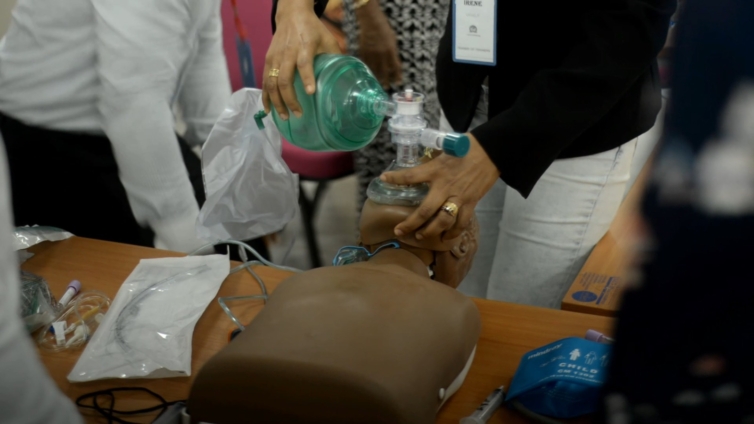There is approximately one anaesthetist for every 30 thousand people in Ghana.
With such a low number relative to the population, access to quality anesthesia and medical care, especially in emergencies and during surgeries are a great concern and strain on professionals.
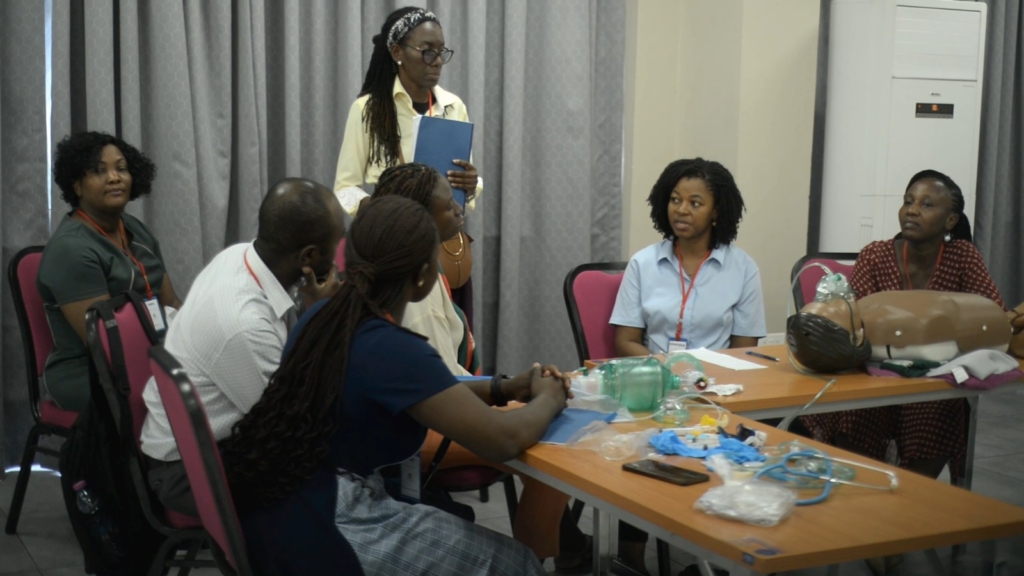
Anaesthetists play an important role in the care of mothers during childbirth, providing anaesthesia for caesarean section, operative delivery, resuscitation of critically-ill mothers and newborns, and provision of safe analgesia in labour.
Anaesthesia for childbirth is associated with a higher risk than routine care, and requires special training for anaesthetists to know how to work safely and efficiently with this group of patients.
Worldwide, 15% of all births result in complications and poor practice of anaesthesia can result in death.
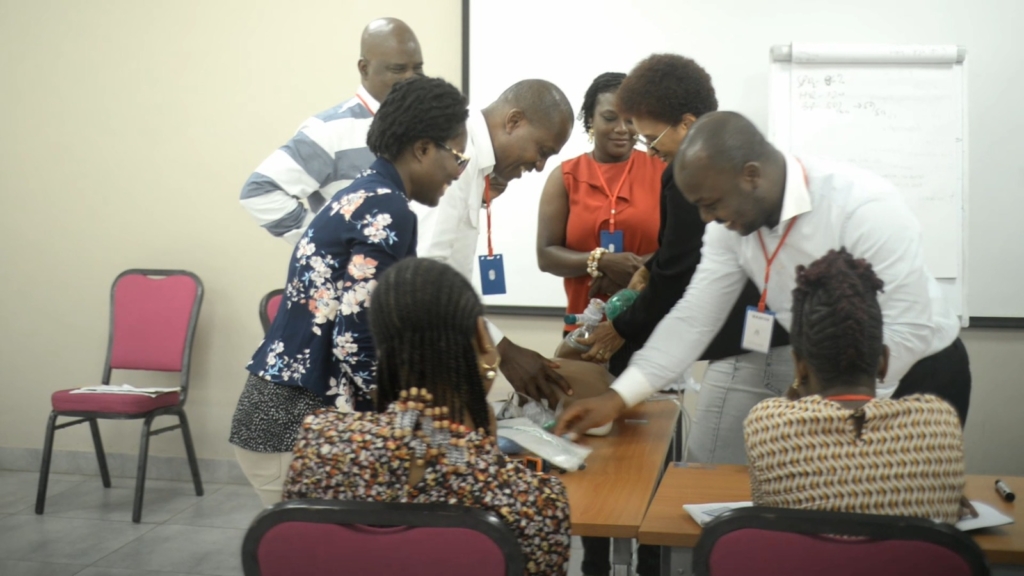
Childbirth complications partly account for 75% of maternal deaths in Ghana.
However, there are few anaesthetists in Ghanaian hospitals to provide up-to standard anaesthesia care.
According to Irene Wulff of Focus Hospital and Vice President of the Ghana Anesthesiologists society, the numbers are not enough.
"... and it is even much smaller for children anesthetists. We are hoping to increase the number of people who can anaesthetize children and pregnant women. Because they are a special group of people who need special methods of treatment. Especially when their mortality rate is high,” she said.
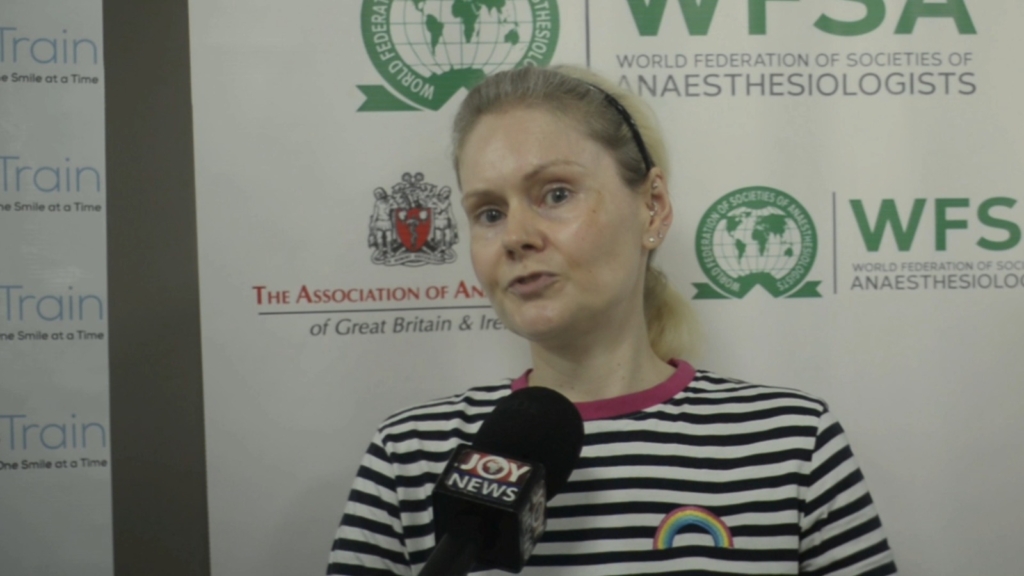
The Association of Anaesthetists of Great Britain and Ireland and the World Federation of Societies of Anaesthesiologists are supporting the SAFE (Safe Anaesthesia from Education) Obstetric Anaesthesia course to improve the care of mothers and children throughout the world.
The ‘Train the Trainers' course has assembled doctors and anesthetists from health facilities across the country in Kumasi to undergo a five-day training.
The training is aimed at addressing the major causes of maternal death, gaining important skills in obstetric anaesthesia and immediate resuscitation of the newborn.
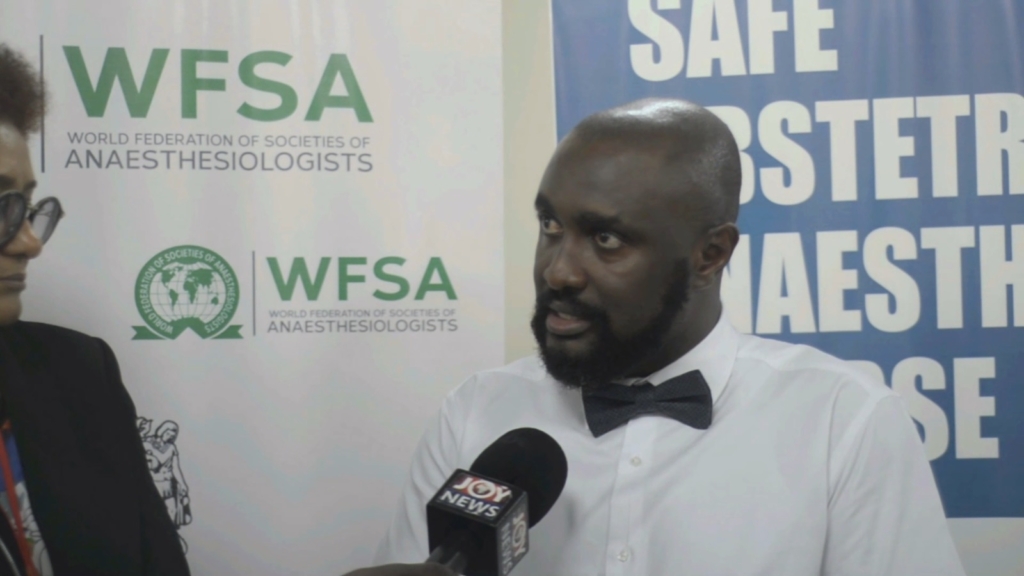
General Secretary of the Ghana Anaesthesiologists Society, Dr Moses Siaw-Frimpong is confident the training will reduce mortality of mother and child.
“When mothers are dying, just before that they become critically ill. And you need to properly train anesthesia practitioners to effectively salvage the situations. Mortality is high at rural centers. And now that we have training like this, we are hoping to roll out the courses to rural enclaves to save more lives,” he said.
Participants were being taken through sterile environment and infection control, extubating, postoperative airway obstruction following cleft palate surgery, analgesia after abdominal surgery among others to be able to train junior and other anaesthesia providers across health facilities.
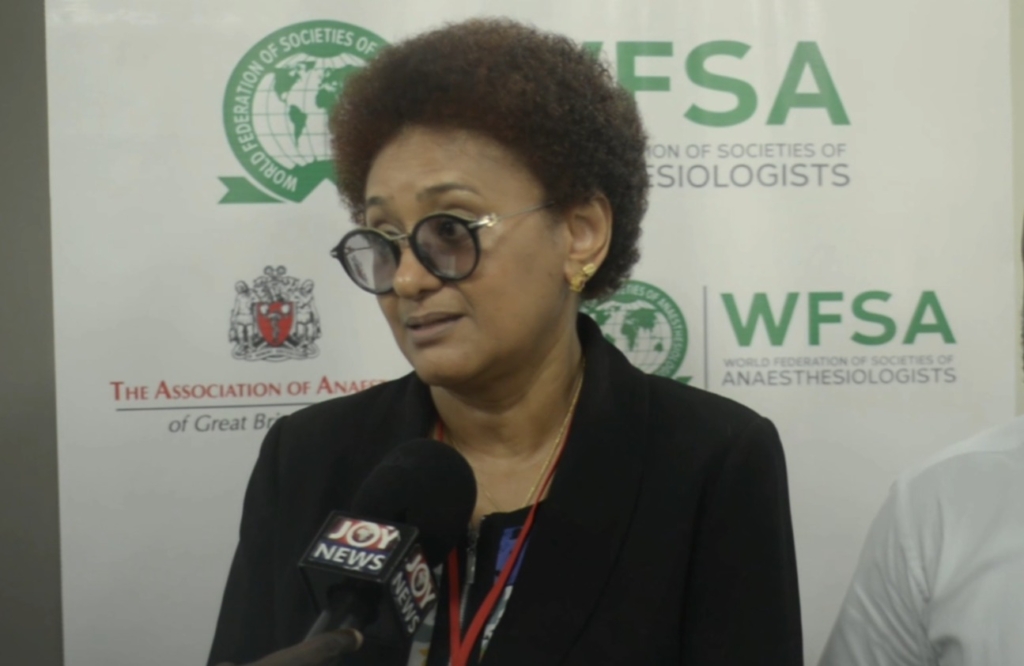
Adele King, of the World Federation of Societies of Anaesthesiologists says these modules are flexible to accommodate geographical variation in pathology and cater to participants with varying work experience and training backgrounds.
“The course recognizes the needs of an adult learner and therefore comprises a variety of teaching modalities to include videos, skill sessions, scenarios, demonstrations, discussion workshops, and interactive lectures. The options of topics are wide ranging to fully equip the learner in all fields of obstetrics", she said.
Latest Stories
-
PURC warns against unapproved meters as revenue loss hits NEDCo in Bono East
30 seconds -
Dr. James Orleans-Lindsay to deliver keynote address at Africa Rising Symposium at LSE
26 minutes -
Cedi confidence and the cost of complacency: What the BoG Governor’s speech reveals
1 hour -
Ga Mantse pledges support for Onesta Ghana’s Palm Oil expansion drive
1 hour -
Today’s Front pages: Wednesday, July 16, 2025
2 hours -
2025 Ghana CEO Vision & Awards: Basil David Anthony nominated for CEO of the Year in Deco and Design
2 hours -
Government committed to honouring sacrifices of veterans – Defence Minister
3 hours -
Mahama’s fuel ban could deliver 81 maternity clinics, 121 schools and 303 CHPS compounds – Dr Khalid
3 hours -
Fuel allowance scrapped: Gov’t, on average, will save over GH¢121m in 4 years – Dr Sharif Khalid
3 hours -
Veterans deserve better – Defence Minister Omane Boamah calls for national support
3 hours -
Trump launches probe into Brazil’s ‘unfair’ trade practices
3 hours -
US inflation rises as tariffs drive up prices
4 hours -
Yemen postpones execution of Indian nurse on death row
4 hours -
World’s ‘oldest’ marathon runner dies at 114 in hit-and-run
4 hours -
Nigeria bids farewell to former leader Buhari with burial in home state
4 hours

